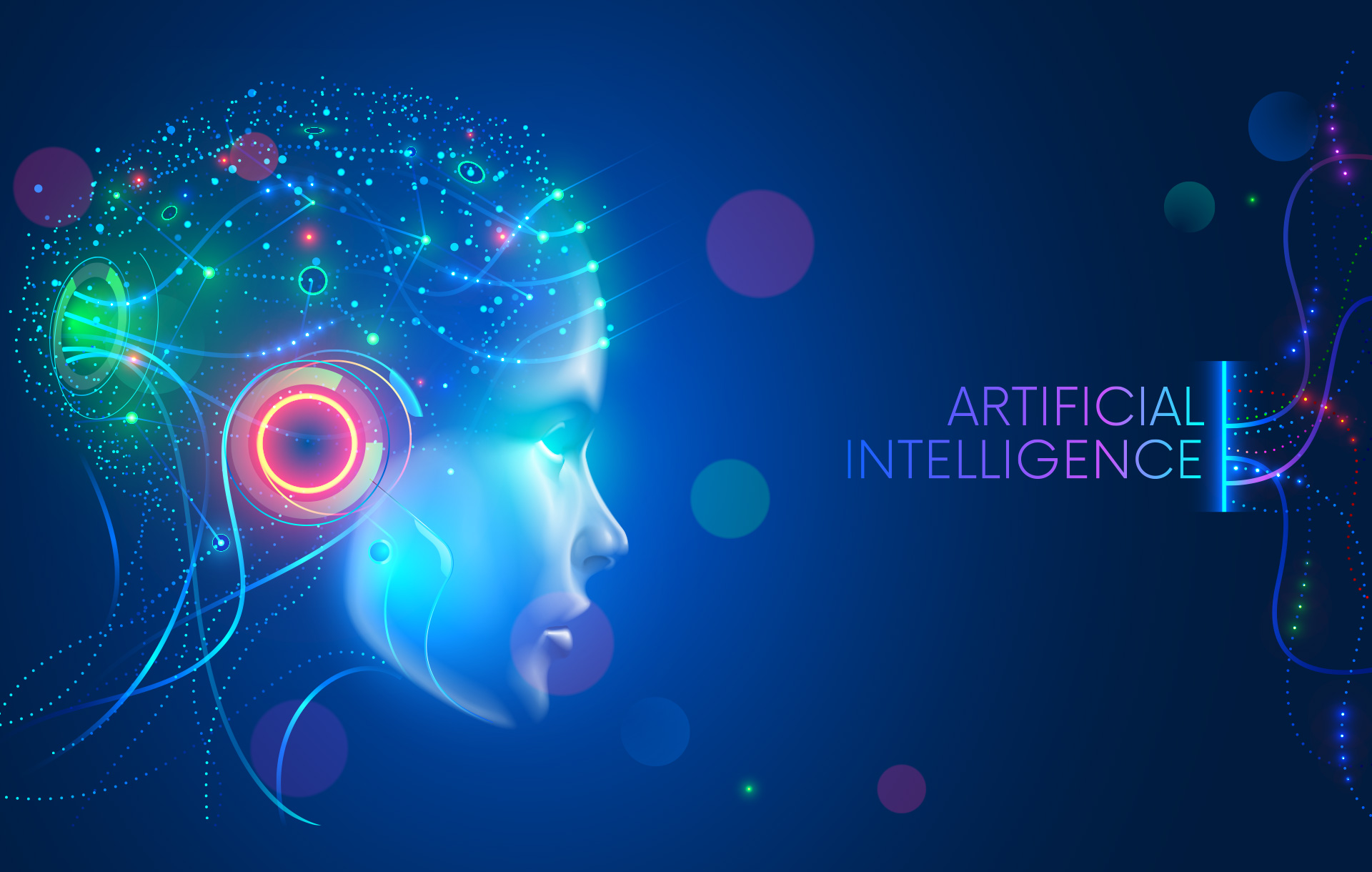AI in Content Management: How Artificial Intelligence is Transforming CMS
Artificial Intelligence (AI) involves machines simulating human intelligence processes. This entails tasks such as learning, reasoning, problem-solving, and perception.
Content Management Systems (CMS), on the other hand, are software solutions designed to help users create, manage, and modify content without needing technical skills.
The synergy of these two powerful tools is revolutionising the digital content landscape.
As of 2023, 35% of businesses are using AI, and this trend will only grow. So, let’s delve deeper and learn more about the use of AI in Content Management Systems.
Unveiling the Role of Artificial Intelligence in CMS
AI can automate a lot of the manual tasks involved in content management, like sorting and categorising. While some tasks, like content creation, can be carried out by AI, we don’t recommend this, as losing the human touch from your content can hurt your brand.
Aside from this, AI-driven analytics can provide insights into audience preferences, ensuring that the right content reaches the right user. AI can also enhance personalisation, delivering individualised content experiences to users based on their behaviour and preferences.
Benefits of AI Integration in Enhancing CMS Efficiency and Effectiveness
In the age of digital transformation, where users are continuously seeking more relevant and personalised content, integrating Artificial Intelligence (AI) with Content Management Systems (CMS) has become imperative. The positive impact of AI on CMS cannot be understated, as it’s elevating the user experience considerably.
Here’s a detailed look at these advantages:
1. Personalisation: Tailoring the digital experience
AI-driven CMS can analyse users’ behaviour, preferences, and past interactions to provide content that resonates with them. This personalised touch ensures that every user feels valued, leading to higher engagement rates.
Depending on real-time user behaviour, AI can modify displayed content to match the ongoing interest of the user.
2. Automation: Streamlining and refining processes
An AI-powered Content Management System can automatically assign relevant tags to content, making categorisation more precise and consistent.
Instead of manually adjusting SEO parameters, AI can analyse search trends and optimise content to rank higher on search engines.
Furthermore, AI can ensure timely updates and removal of outdated content.
3. Enhanced search: Making discoverability seamless
Traditional keyword-based searches can often miss the context. AI can understand the user’s intent, providing more relevant search results.
With the rising popularity of voice-activated devices, AI-driven CMS can optimise content for voice search, catering to a broader audience.
AI can even search within images and videos, recognising patterns, objects, and faces, making visual content more discoverable.
4. Content recommendations: Guiding users through a journey
By analysing a user’s navigation pattern, AI can predict and recommend content that the user might find interesting.
Whether a user switches from mobile to desktop or vice versa, AI ensures that content recommendations remain consistent across all devices.
Users will likely spend more time on a platform with more relevant content suggestions, leading to lower bounce rates and higher retention.
The Impact of AI on CMS Efficiency and User Experience
AI ensures a faster content delivery process thanks to automated workflows and reduced manual interventions. It enhances user experience by providing relevant, personalised content in real-time. Features like AI-powered chatbots can further improve user interactions, making the CMS more interactive and dynamic. It’s worth touching base with a CMS development agency that can provide insight into how this will benefit your business specifically.
Foundations of AI-Powered Content Management
In today’s digital era, the need for smart, adaptable, and efficient Content Management Systems (CMS) is more significant than ever. With increasing content creation every day, managing this vast ocean of information requires sophisticated tools.
Here’s where Artificial Intelligence (AI) comes in, transforming traditional CMS into intelligent, responsive systems. At the heart of this transformation lie a few foundational technologies:
1. Machine Learning algorithms: Learning from data
- Adaptive content delivery – Machine Learning (ML) models can learn from user behaviour over time and adapt content delivery to best suit individual preferences.
- Automated categorisation – ML algorithms can automatically categorise content based on patterns and similarities, removing the manual labour of content sorting.
- Anomaly detection – By recognising patterns, ML can also spot anomalies or irregularities in content, aiding in maintaining content quality.
2. Natural Language Processing (NLP): Understanding human language
- Semantic Analysis – NLP allows the CMS to understand the context behind the content, ensuring relevant categorisation and tagging.
- Sentiment Analysis – By analysing the sentiment behind user-generated content or feedback, CMS can gauge user reactions and feelings towards specific content.
- Language translation – NLP provides real-time translation capabilities, making content accessible to a global audience without manual intervention.
3. Predictive Analytics: Anticipating future trends
- Content recommendations – By analysing past user behaviours and preferences, predictive models can forecast the type of content a user might be interested in next.
- Trend forecasting – For content creators, predictive analytics can provide insights into emerging trends, ensuring the content remains relevant and up-to-date.
- User journey optimisation – Predictive analytics can also anticipate user paths, enabling CMS to streamline content delivery for optimised user journeys.
How Artificial Intelligence is Transforming CMS
To summarise, AI is bringing about:
- Image and video recognition – AI can automatically tag and categorise visual content.
- Voice search optimisation – As voice searches become prevalent, AI can optimise content for this new search method.
- Language translation – AI can automatically translate content, making it accessible to a global audience.
Measuring AI-CMS Performance
Incorporating AI into a Content Management System (CMS) undoubtedly offers many benefits, from personalisation to automation. However, performance measurement becomes crucial to ensure that this integration delivers on its promises. Monitoring the effectiveness of an AI-driven CMS will help organisations adapt, evolve, and make data-driven decisions. Here’s how you can approach this task:
1. User Engagement Metrics
- Bounce Rate – A low bounce rate indicates that visitors find the content relevant and are exploring more of the platform.
- Page Views Per Visit – An increased number of page views suggests that users are engaging with more content, a positive sign of their interest.
- Returning vs. New Users – A growing number of returning users can indicate that AI-driven personalisation is successfully retaining audience interest.
2. Click-Through Rates (CTR)
- Content CTR – Track the percentage of users who click on recommended content. A higher CTR indicates that AI recommendations are on point.
- Ad CTR – For monetised platforms, monitoring the CTR for ads can provide insights into how effectively the AI is targeting advertisements.
3. Time Spent on the Platform
- Average Session Duration – A longer session duration suggests users find the content engaging and relevant.
- Time on Page – Monitor the time users spend on individual pieces of content to understand which topics or formats resonate most.
4. A/B Testing for Personalization
- Personalisation Variants – Test different AI-driven personalisation strategies to see which performs best. For instance, compare content recommendations based on user behaviour versus those based on collaborative filtering.
- Conversion Rate Optimisation – Use A/B testing to see which personalised prompts or calls to action increase conversions.
5. Feedback and Sentiment Analysis
- User Surveys – Periodically gather user feedback to understand their experience with the CMS and the relevance of AI-driven content.
- Sentiment Analysis – Use AI itself to analyse comments, reviews, and feedback to gauge the overall sentiment towards the platform and its content.
6. System Performance Metrics
- Query Response Time – Measure how quickly the AI-powered CMS retrieves and displays content. Speed is crucial for user experience.
- Error Rate – Track the frequency of incorrect content recommendations or mis-categorisations. A high error rate can indicate areas where the AI needs refining.
7. ROI and Business Impact Metrics
- Cost Savings – Calculate the operational costs saved due to AI-driven automation in content management.
- Revenue Growth – Monitor any growth in revenue that can be directly attributed to improved user experience and engagement due to AI integration.
Future Directions of AI in Content Management
What does the future of AI-powered CMS hold?
- Hyper-personalisation – Tailoring user experiences down to minute details.
- Real-time content adaptation – Changing content in real-time based on user behaviour.
- Intuitive UI/UX design – AI-driven user interface and experience design tailored to individual user needs.
Conclusion: Embracing AI-Powered Content Management for a Dynamic Digital Landscape
Integrating AI into CMS promises a dynamic, efficient, and personalised digital content landscape. By embracing this synergy, businesses can stay ahead in the digital age, delivering content that resonates, engages, and drives action.
Subscribe To Us
Contributors
Categories
Subscribe To Us
Contributors
Categories

This website uses cookies so that we can provide you with the best user experience possible. Cookie information is stored in your browser and performs functions such as recognising you when you return to our website and helping our team to understand which sections of the website you find most interesting and useful. Third party cookies such as Google Analytics is also used on this site to provide analytics in order to better understand the user engagement on our site.
You can adjust all of your cookie settings by navigating the tabs on the left hand side.
Strictly Necessary Cookie should be enabled at all times so that we can save your preferences for cookie settings.
If you disable this cookie, we will not be able to save your preferences. This means that every time you visit this website you will need to enable or disable cookies again.







0.Comments